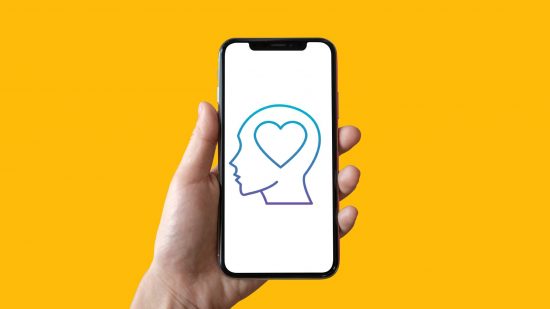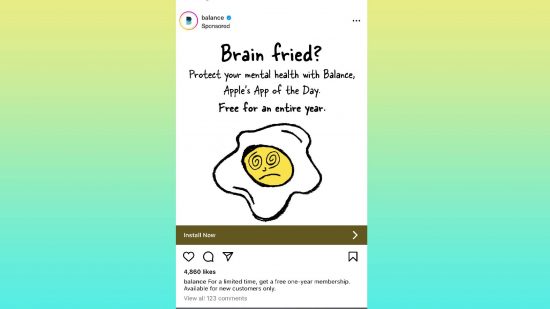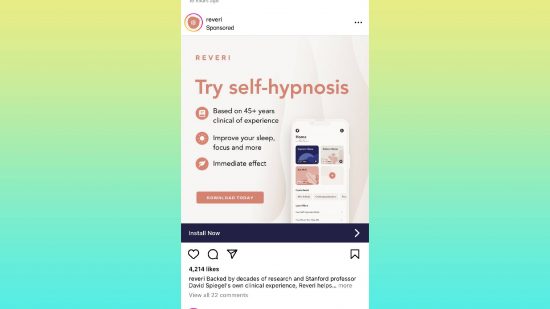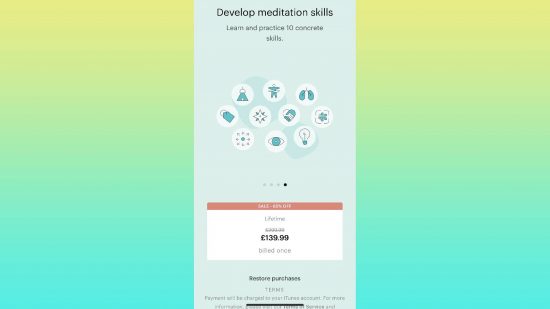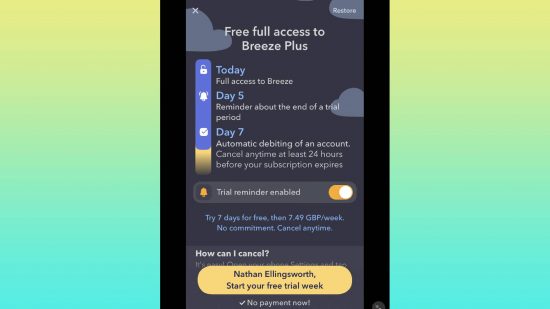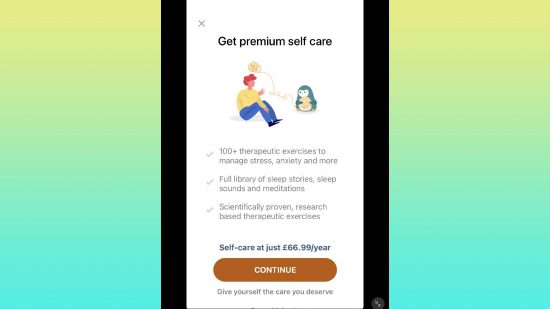Hey reader, just a content warning at the top here because this article discusses mental health, as well as some personal experiences from the team. Mental health is something everyone should be able to discuss openly, and there’s no shame in needing help, but if you aren’t feeling up to reading about heavy topics, maybe give this article a miss for now. Thanks, and I hope those who do read find something helpful here.
In the year 2023, on the back of ongoing recessions, the lingering effects of a global pandemic, and countless other issues: mental health is an important topic of discussion. Everyone has it, and looking after it is something that many of us are getting used to, just as we look after our bodies by going to the gym.
Luckily, like almost every other aspect of our lives, there’s an app for that. A growing library of ‘wellness’ applications focused on improving mental health or promoting useful techniques like mindfulness and meditation are springing up on smart devices. Some are helpful, others are not, but there’s a rising issue in the way they target the consumer, as well as with their business models.
Now, if you’re in dire need of help with your mental health, then obviously, the best thing to do is speak to a doctor, or, if needed, the emergency services. Well, that’s the line anyway. I live in the UK, and while the NHS does its best, mental health services are stretched to their limits which unfortunately means that they’re increasingly only willing to help people on the verge of doing something drastic.
Though there’s a whole spectrum of mental health issues that can impact people in different ways, the availability of services, therapists, and counselling offered for people who need help is woeful at best. This is something that I know first-hand. I was recently signed off work for depression and anxiety, as life events triggered a mental collapse, and I sought medical treatment. My doctor’s words were very kind, but as always, the only actual things offered are a months-long waiting list for CBT or contact information for private therapy, the latter of which comes at a great cost.
Now, luckily I took the time I needed and am in a much better place, but whether my search history on Google was tracked or my chat with my doctor was heard by Instagram, my targeted ads haven’t been the same since. You might have spotted these ads for mental health-focused apps as well, with comforting words like “Brain fried? Protect your mental health.” Another ad offers to help me “stop being distracted by things I can’t control,” while another app even offers self-hypnosis, with the aim to “improve your sleep, focus and more.”
So, what’s the issue? While there are immediate and free mental health lifelines, the thought of approaching someone can be overwhelming. In the UK, we have charities like The Samaritans, CALM, Mind, and Give us a Shout, each of which offers different services like phone conversations or text services, designed to help those in need. The problem with these mental health apps is that the payment practices seem completely unregulated.
Questionable payment options on app stores are nothing new. Whether it’s the free-to-play mobile apps that chase elusive ‘whales’ or the problems that arrive from mobile games forced change, there seems to be very little regulation or even supervision when it comes to unsavoury business practices. But as long as Apple or Google continue to take their cut, why would they care? It’s in their interest for these apps to make thousands of dollars, even if it does come from people who cannot, and should not, pay for these services.
When it comes to mental health apps, a lot of them are free to download. Fantastic, people who need help should be able to access these apps easily. The issue arises in how the developers actually monetise them, as so many of these apps use exorbitant monthly fees as their model. Many people sucked in by adverts offering comfort, and seeking guidance in a time of need, are having the help they need dangled above them if only they can pay.
Naturally, if you’re offering a service, especially such an essential one, it should be funded and paid for. I’m not arguing that every mental health app be free, but something needs to be done about these payment practices. I searched the app store, and I couldn’t find a single wellness app that offers a one-time purchase, instead, every single one offers in-app purchases. So, let’s dive into them.
Breeze is an app that offers to help you track your mood and sleep, allowing you take tests to explore and manage your anxiety. But, after a free trial week, the app then switches to a £7.49 a week model. That is nearly £30 a month, simply for an app that should help to alleviate stress. Another Ed Can Help, an anxiety-focused app with guided meditations. Once again, after a trial period, this app switches to £9.99 a month or a £49.99 annual fee.
Other apps I looked at include Wysa, a self-care app that offers up “research-based therapeutic exercises” for £66.00 a year. Reveri the self-hypnosis offers a series of pre-recorded speeches from hypnotists for £7.50 a month, or £89.99 a year. One of the leading apps is Headspace, which provides a series of meditation tools, and has a free trial period of seven days before moving to £9.99 a month or £49.99 a year.
One app I do use is Balance, which currently offers a free year. However, if I want to purchase the app, unlocking everything it has to offer costs £399.99. I fully understand that actual therapy is very expensive, and some of these apps offer a service that could seemingly be helpful and cost much less than therapy. But people are finding these apps in times of need, and the mixture of a free trial and then a lapse into extortionate monthly fees isn’t an accident, as app developers will be hoping that people forget to cancel their subscriptions.
I was recently diagnosed with ADHD, a mental health disorder that you can find alongside issues like anxiety and depression. Many issues include impulse control, difficulties around money, and understanding the weight of decisions. Apps like these wellness apps feel like they’re not only purposefully finding people who need help with targeted ads, but using their mental health issues, or neurodivergent tendencies, to further their own business practices.
The fees of these apps are extortionate for the services offered (trust me, I’ve tried a lot, and I’ve paid for a lot of actual therapy), but people signing up in a moment of panic will not know this, and are possibly not in the right mental state to make good decisions with their money. We’ve all been low, and the prospect of an app offering to make it all better is a tempting one, so it’s no surprise that people sign up for these apps in a moment of distress.
One other issue is when people don’t sign up to wellness apps or end their subscriptions. Staff writer Tilly Lawton has some experience with the therapy app BetterHelp, and shared some of her emails with me. First of all, BetterHelp offers therapy from people around the world over your phone, but for the price of £40 a week, billed every four weeks. So, £160 a month. However, after turning down the service, people like Tilly often get multiple chaser emails.
Messages appear in inboxes with the words “Hey, can I help?” in the opening, knocking down the price to £31 a week, so still an eye-watering £124 a month. These messages of support in an email would be fine, but coupled with the pricing models and free trials, there’s a seedy underbelly to this whole industry, clearly attempting to capitalise on people in their lowest moments. People on the poverty line are often those with mental health issues, and the idea of letting these trials lapse over into an extortionate monthly cost could be devastating to some.
There’s of course a certain amount of personal responsibility, and I’m sure that will be the first argument anyone will make against this article. While that is certainly an argument with videogames, especially ones with age ratings, the idea of these wellness apps targeting both neurodivergent people and those under extreme stress is frankly a sickening one. Again, if these apps were simply offering help at an affordable price, it would be fine, or if they pointed towards real, proven, mental health services. But, many are funnelling people who need help into extortionate business models and preying on their weakness.
I don’t know what the answer here is, but I’ve seen enough of these apps, and their staggering monthly charges, to last a lifetime. Over many years of mental health wobbles I’ve downloaded, opened, and then deleted so many of the apps mentioned, always balking at the eye-watering costs, and wondering what – if any – help was actually available. Almost every time, the best resources have been the ones that came from actual mental health services provided by the NHS, but people so often don’t have the luxury of patience when dealing with a mental health crisis.
If you are in need of help with your mental health, please talk to your doctor, and see what services are available to you. Something is always available for free (in the UK, at least), and no matter where you are, multiple countries have charity-led phone numbers you can call or text for immediate assistance.
In a world where Instagram is overrun with people turning ADHD into content and users sharing their issues with anxiety and depression, it can be easy for those same social media platforms to point us in the direction of apps that might seem helpful. But please, take a moment to look at the costs, the trial periods, and ask yourself whether you can afford it, and if the apps actually offer anything worthwhile. Some apps are trying to target you at your lowest moments, so please, find more frugal and official ways to treat your mental health.
